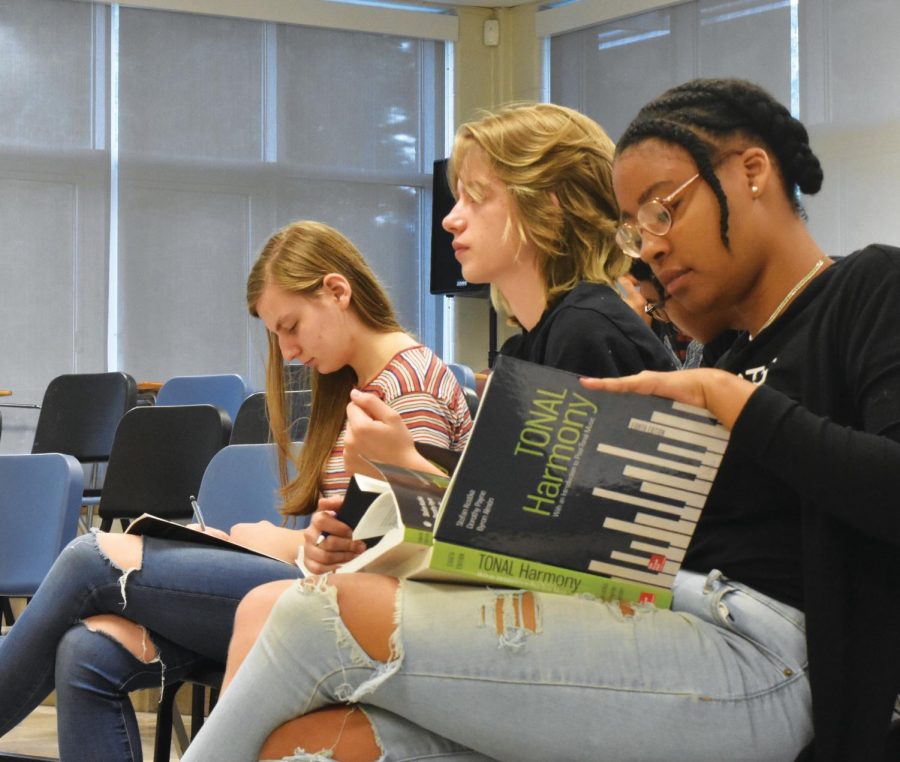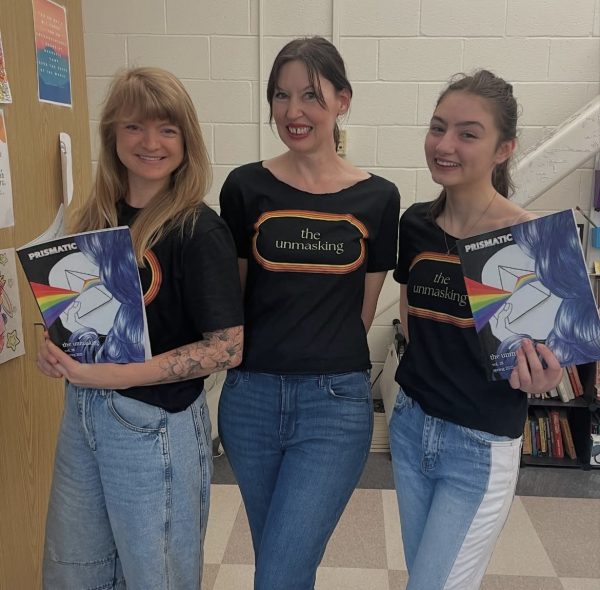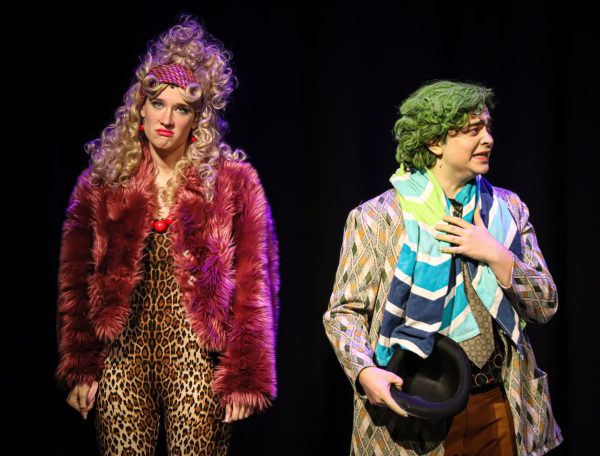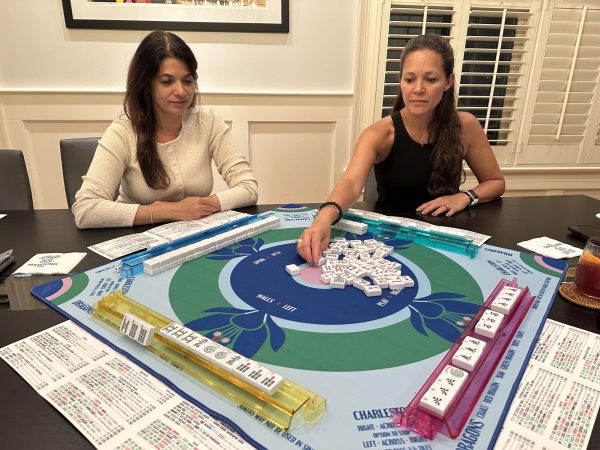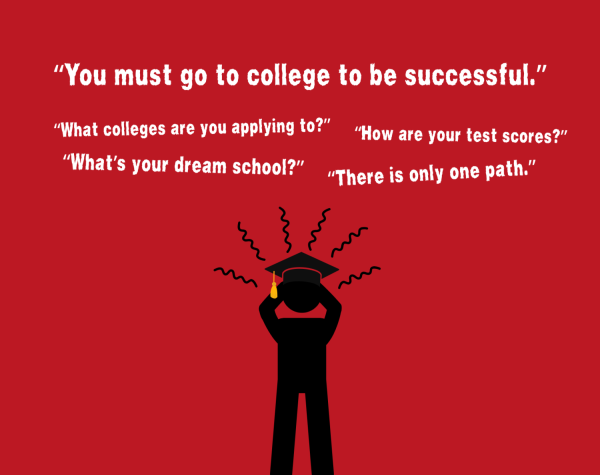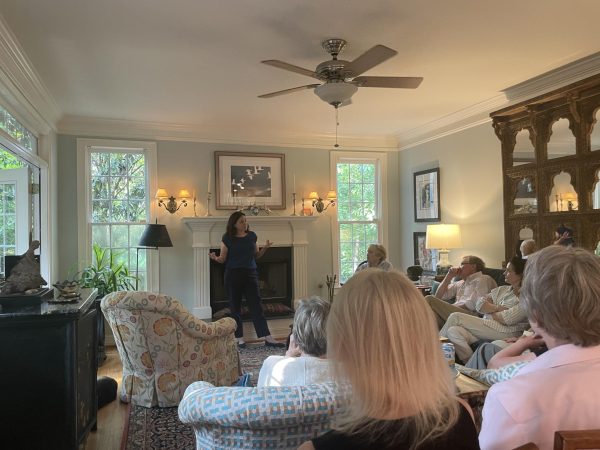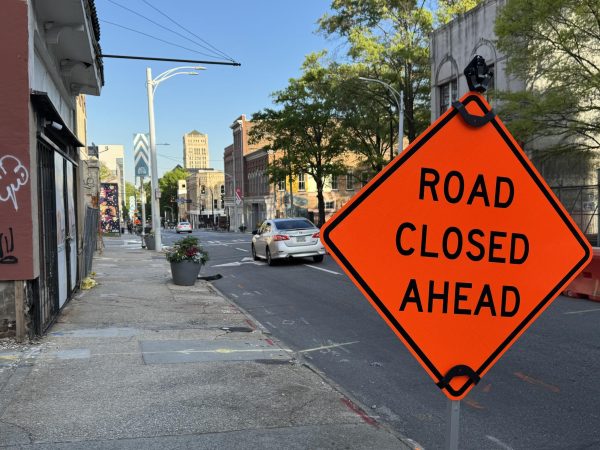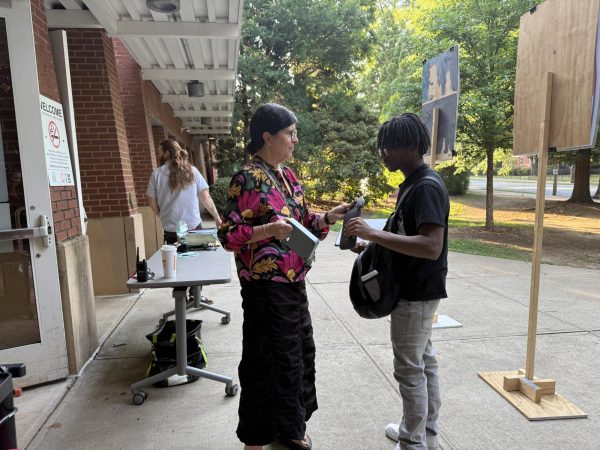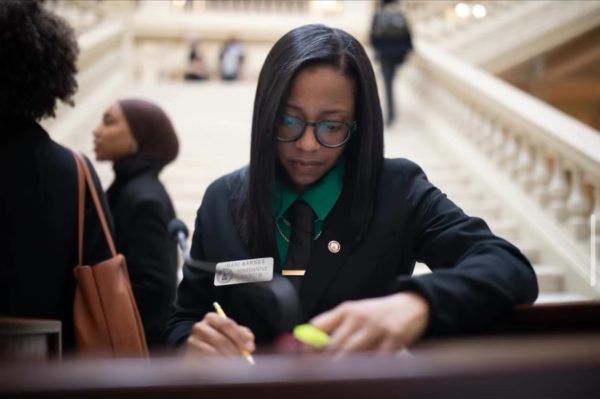Interest in AP Music Theory ensures continuation
Senior Taylor Jackson, junior Gabby Nimmer and senior Lucy Gelber look through their AP music theory books as Mr. Hill calls on students for answers.
AP music theory, an advanced placement class deemed one of the hardest by teacher, Kevin Hill, has been brought back this school year, and its popularity has risen: more students are taking the class than ever before.
“The reason it’s not offered every year is because of numbers,” said Kevin Hill, chorus director and AP music theory teacher. “It’s usually a small class, and the past two years we have not offered it. Usually it’s been about every other year is kind of how it lined up. The school has a requirement there has to be about 20 in a class and it’s hard to justify a class that’s only like ten.”
Because AP music theory is generally not offered every year, it forces some students to take it earlier than they feel prepared to. It also excludes students who are not able to take it the only year it is offered because their schedule does not allow it.
“I wanted to take AP music theory, but I didn’t have room in my schedule this year,” said senior Andrew Beamon, who is in jazz band. “It wasn’t offered last year, and that would have been the year I could have taken it. I think it was offered my freshmen year, but I definitely would not have been ready to take the class then.”
An option that has been considered to make is possible to offer AP music theory every year is to turn the class into a beginner/advanced class where a student could take it one year, not receive the AP credit, and take it again the following year to make the student more prepared for the AP test. The downside with this alternative is it would be even more difficult for students to fit two years of the class into their schedules.
“We’ve had the beginning level but the problem with offering it for music students is most of the time their schedules are pretty full with other stuff,” Hill said. “To require them to take a beginning class one year or one semester and then advanced, they would have to be cutting some AP classes, so I think that program would not work with schedules.”
The difficulty of the class is widely known throughout the student body and could be what initially scares people away from the class. It ensures that those taking the class are truly invested and interested in studying music.
“For those that have been studying music really seriously for a long time, it’s pretty accessible,” Hill said. “I think for most students it’s one of the most difficult if not the most difficult because other AP classes typically cover what would be like a semester of college material, maybe a bit more, but AP music theory is kind of like two classes. There’s an ear training part and sight singing which most colleges offer as a separate class and then it’s also the music harmony and theory part. So it’s kind of like two classes combined and it’s like a full year of material, so it’s a lot to master.”
There are currently 19 students in the class, smaller than typical core classes at Grady. The class is filled with one freshmen, nine seniors and the rest juniors and sophomores. AP music theory’s small class size has proven beneficial for the students taking it because of the difficulty of the course.
“It’s great that the class is small, everyone in it is meant to be there, and it makes it easier to learn,” said senior Guiana Nunez, a student in the class. “It’s maybe the hardest class I’ve ever taken because there are so many new concepts that don’t have anything to do with anything else in the world. You have to learn everything from scratch and really fast because there’s a lot in the curriculum. The small class size helps though because there’s more individualized attention.”
The ability to take AP music theory next school year is dependent on the amount of students that request the class. Hill remains hopeful that there will be enough interested students to offer a class.
“I think there are more and more students that are serious about music,” Hill said. “It seems like there’s a good chance for next year. It’s just always that specific numbers game where if we can get at least 15, then we can make the class happen.”
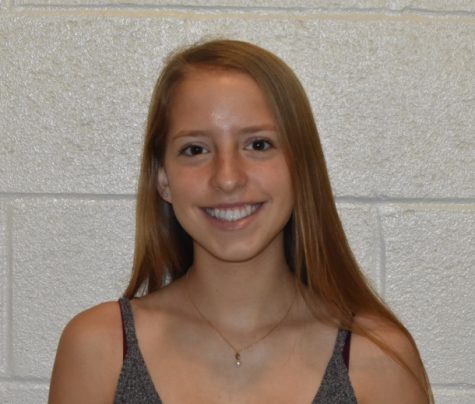
Anna Tischer is a third year staff member on the Southerner and a senior in the graduation class of 2019. She is currently the online managing editor and...
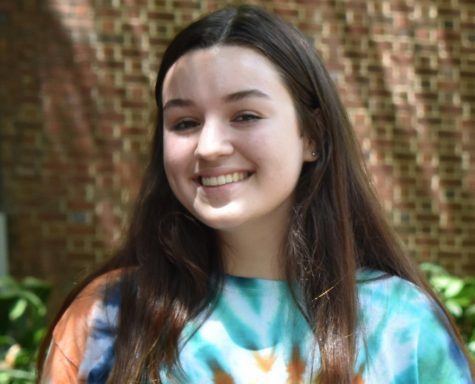
Ellie is happy to be a photographer for the Southerner. Besides that and writing for Nexus, she enjoys music, and is a member of the Grady Mock Trial team.

